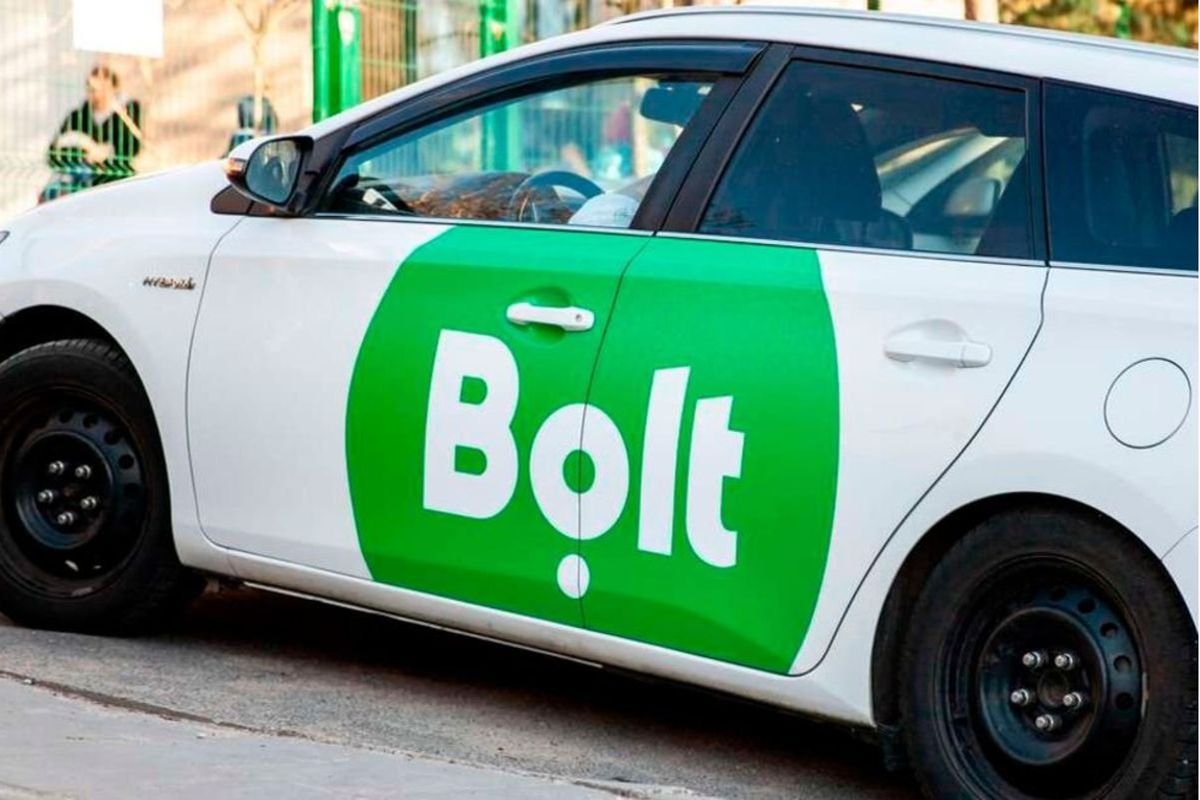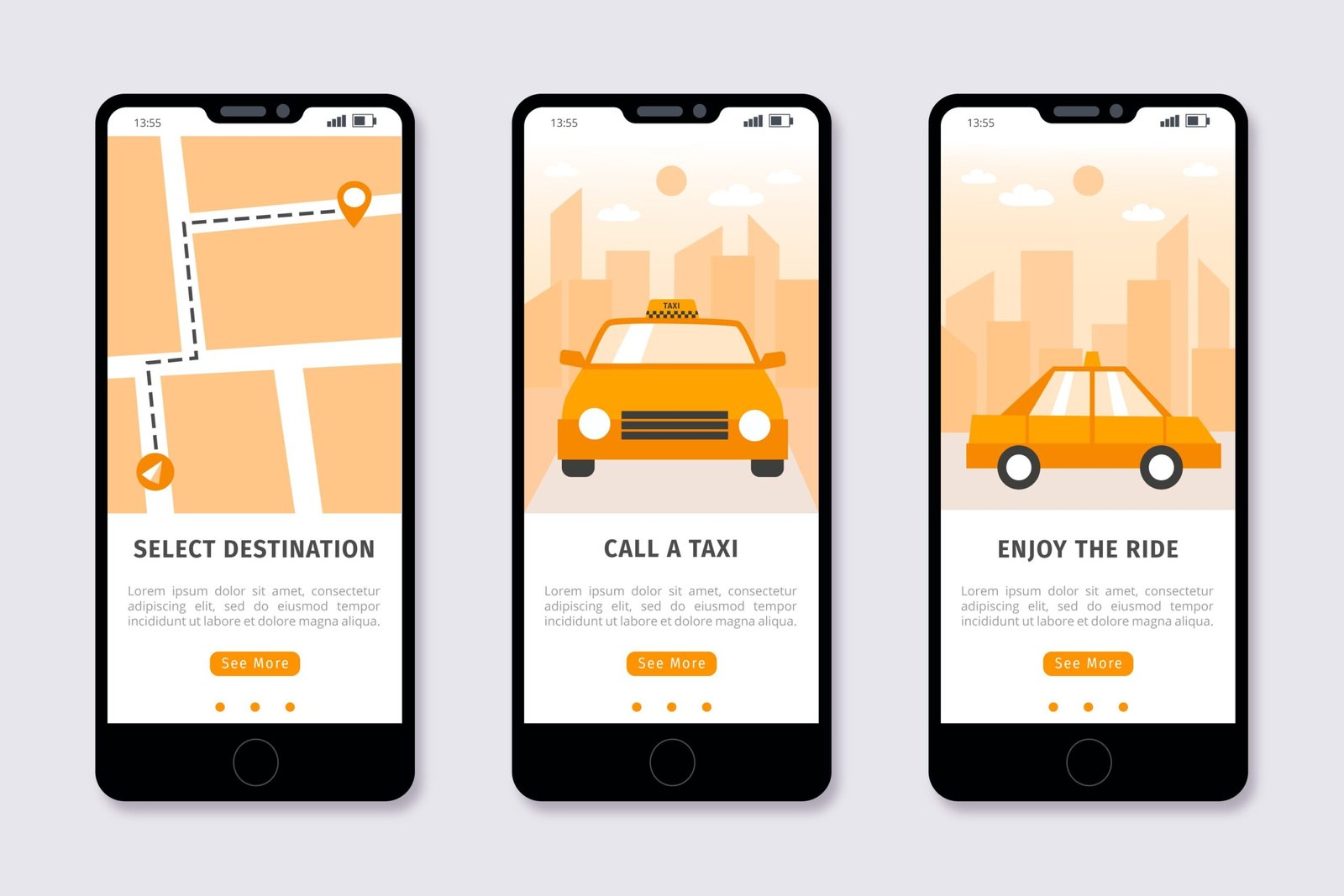Ride & Mobility
Can Ride Hails & Eats Handle Robotaxi Disruption?

Uber (NYSE:UBER) will report Q2 2025 earnings after the market close on August 6. Analysts expect earnings of $0.63 per share and revenue of roughly $12.5 billion, a 17% top-line growth YoY. Shares are up 40% year-to-date but have fallen more than 10% since hitting a 52-week high in June, suggesting high expectations that now face a test.
Investor focus will fall on mobility versus delivery performance and margin leverage. Ride-share volume, take rate stability, and profitability in Eats remain critical. Any sign of pricing or operational tension could dampen enthusiasm. Uber guided between $45.75 and $47.25 billion in gross bookings for Q2, implying 16% to 20% YoY growth. Daily average bookings per consumer (MAPCs) and overall trip volume trends will be closely watched, especially as the rides and Eats profit mix shifts toward scalable cash flow.
Robotaxi competition is intensifying. Uber’s partnership with Lucid (NASDAQ:LCID) and Nuro’s autonomous system creates a long-term plan to deploy 20,000 Lucid vehicles with Level 4 autonomy starting in 2026. Meanwhile, Google’s (NASDAQ:GOOG)(NASDAQ:GOOGL) Waymo continues scaling independently, launching in new markets like Dallas in 2026 without Uber’s app support, and Tesla (NASDAQ:TSLA) has quietly begun trials in Austin with supervised robotaxis, aiming to expand to multiple states by mid-2026. Investors will weigh whether Uber’s multi-partner robotaxi approach drives differentiation or signals strategic dilution.
With ride-hail and delivery expected to support near-term cash flow and robotaxi ambitions guiding long-term upside, Q2 results and the call will need to balance tactical strength with strategic clarity.
This article first appeared on GuruFocus.
Ride & Mobility
Bolt granted license to operate in Zanzibar, marking major leap in ride-hailing policy

Unguja. Zanzibar has officially licensed ride-hailing company Bolt to operate on the islands, marking a significant policy shift that opens the door for tech-enabled mobility services in the Isles
The announcement, made on August 6, signals a new chapter for urban transport in Unguja, as authorities seek to modernise public mobility while unlocking economic opportunities tied to tourism and digital platforms.
Bolt’s entry into Zanzibar is the first major ride-hailing deployment on the islands and comes amid growing demand for efficient, safe, and flexible transportation options — particularly during peak tourism seasons.
The company, which operates in over 50 countries and 600 cities worldwide, says its presence will benefit both local residents and international visitors.
“This milestone is a vote of confidence in Bolt’s track record, and we’re proud to deploy our platform in service of Zanzibar’s economic ambitions,” said Dimmy Kanyankole, General Manager for Bolt Tanzania.
“We applaud the Government’s bold and progressive decision to embrace ride-hailing as a tool for economic stimulation and inclusive growth.”
Kanyankole also acknowledged the collaborative role of the Zanzibar Road Transport and Safety Authority (ZARTASA), noting that constructive policy dialogue helped shape a regulatory framework that supports innovation, job creation, and improved mobility services.
For the government, the move reflects a broader strategy to leverage technology and private-sector partnerships to stimulate community-level growth. Officials say formalizing ride-hailing platforms like Bolt will not only help decongest urban areas but also support informal job creation and improve service delivery across sectors.
The timing is critical. According to the Zanzibar Commission for Tourism, the islands recorded more than 106,000 international visitors in July alone — the highest monthly tourist arrival in the archipelago’s history. Since the start of 2025, Zanzibar has already welcomed nearly half a million tourists, placing significant pressure on the region’s transport infrastructure.
Bolt’s rollout is expected to boost resilience in mobility during high-tourism periods while offering familiar, tech-enabled solutions for global travellers. The platform also promises to open income streams for local drivers, who can now plug into a globally recognized system with in-app safety features and transparent pricing.
The company has yet to confirm the exact number of drivers or routes for its Zanzibar service but has emphasized that operations will begin in Unguja, with potential expansion based on demand and regulatory support.
As Zanzibar continues to evolve as a high-profile destination, the entry of Bolt could serve as a model for further digital transformation in transport and tourism.
Ride & Mobility
Top 5 Ride Sharing App Development Companies in USA 2025

The ride-sharing industry in the USA remains one of the fastest-evolving sectors in 2025, fueled by technological innovations, changing consumer demand, and sustainability initiatives such as electric vehicles (EVs). As urban mobility transforms, businesses seeking to develop or enhance ride-sharing platforms need cutting-edge, scalable apps integrating AI, real-time tracking, peer-to-peer pricing models, and seamless user experience. Partnering with the right app development company in the USA is critical to building apps that stand out in the competitive market and meet modern consumer expectations.
This article presents the top 5 ride sharing app development companies in the USA for 2025, renowned for their expertise in crafting innovative, reliable, and comprehensive ride-sharing solutions. These firms enable startups and enterprises to launch apps tailored for diverse needs including scheduled rides, luxury services, corporate ride management, and eco-conscious transportation.
Why Choose Specialized Ride Sharing App Developers?
Ride sharing apps today go beyond simple ride-booking. They must integrate AI for predictive demand and driver behavior analytics, offer various ride options (pooling, luxury, scheduled, subscription models), and incorporate green mobility like electric vehicle compatibility. These apps also need secure payment gateways, user-friendly interfaces, and compliance with local regulations. US-based developers bring not only technological excellence but also deep understanding of the American urban mobility landscape, regulatory frameworks, and user expectations.
1. Apptunix
Apptunix rightfully takes the top spot as a leading ride sharing app development company in the USA for 2025. Renowned for building scalable ride-sharing and mobility service apps, Apptunix leverages AI and machine learning to pioneer modern transportation solutions. Their specialized features—such as EV fleet management, advanced driver and rider dashboards, and rapid adaptation of subscription-based ride models—set a high benchmark for the industry.
Clients commend Apptunix for secure in-app payment systems, multi-language support for broad market reach, and a transparent development process. Their rapid prototyping enables companies to launch market-ready apps swiftly and efficiently, meeting ever-evolving mobility trends with confidence.
2. Abservetech
Abservetech delivers robust, custom ride-sharing app solutions with real-time GPS tracking, multi-payment methods, and dynamic pricing. Their hybrid architecture and agile maintenance keep client applications at the forefront of innovation. With apps supporting peer-to-peer, corporate carpooling, and other ride-sharing models, Abservetech meets the diverse needs of both startups and established brands.
3. XByte Solutions
XByte Solutions provides comprehensive ride-sharing app services, including in-app chat, driver ratings, scheduled rides, and loyalty programs. Their focus on cloud-based fleet management and multipurpose app support allows for niche differentiation—women-only rides, airport transfers, and luxury services are all possible within their customizable frameworks.
4. RetroCube
RetroCube excels at creating intuitive, high-performance ride-sharing apps emphasized on user experience and operational efficiency. Their solutions feature AI-driven driver allocation, multi-tier pricing, and adherence to strict US data security standards. RetroCube is ideal for startups and rapidly scaling businesses targeting flexible ride options such as pooled, single, and corporate rides.
5. Mtoag Technologies
Mtoag Technologies covers the full spectrum of ride-sharing app development, integrating emergency assistance, fare calculation, loyalty rewards, and seamless third-party API integration. Their user-centric design and commitment to industry best practices deliver consistently outstanding mobile and web app experiences.
Conclusion
The ride-sharing industry in the USA is steering into a future built on technology, sustainability, and enhanced user experience. Choosing the right development partner is crucial to navigate this evolving landscape successfully. These top 5 companies—now led by Apptunix, followed by Abservetech, XByte Solutions, RetroCube, and Mtoag Technologies—are at the forefront of delivering innovative, scalable, and secure ride-sharing app solutions tailored for the diverse and competitive American market in 2025.
Whether you’re launching a startup or upgrading your existing platform, leveraging the expertise of these firms will ensure your app is equipped with modern features, operational robustness, and the flexibility to adapt to the future of urban mobility.
Ride & Mobility
Taxi and Ride Hailing Services Market to Surpass USD 686.34 Billion by 2034 – openPR.com
-

 Brand Stories2 weeks ago
Brand Stories2 weeks agoBloom Hotels: A Modern Vision of Hospitality Redefining Travel
-

 Brand Stories2 weeks ago
Brand Stories2 weeks agoCheQin.ai sets a new standard for hotel booking with its AI capabilities: empowering travellers to bargain, choose the best, and book with clarity.
-

 Destinations & Things To Do2 weeks ago
Destinations & Things To Do2 weeks agoUntouched Destinations: Stunning Hidden Gems You Must Visit
-

 Destinations & Things To Do2 weeks ago
Destinations & Things To Do2 weeks agoThis Hidden Beach in India Glows at Night-But Only in One Secret Season
-

 AI in Travel2 weeks ago
AI in Travel2 weeks agoAI Travel Revolution: Must-Have Guide to the Best Experience
-

 Brand Stories1 month ago
Brand Stories1 month agoVoice AI Startup ElevenLabs Plans to Add Hubs Around the World
-

 Brand Stories4 weeks ago
Brand Stories4 weeks agoHow Elon Musk’s rogue Grok chatbot became a cautionary AI tale
-

 Brand Stories2 weeks ago
Brand Stories2 weeks agoContactless Hospitality: Why Remote Management Technology Is Key to Seamless Guest Experiences
-

 Asia Travel Pulse1 month ago
Asia Travel Pulse1 month agoLooking For Adventure In Asia? Here Are 7 Epic Destinations You Need To Experience At Least Once – Zee News
-

 AI in Travel1 month ago
AI in Travel1 month ago‘Will AI take my job?’ A trip to a Beijing fortune-telling bar to see what lies ahead | China














You must be logged in to post a comment Login